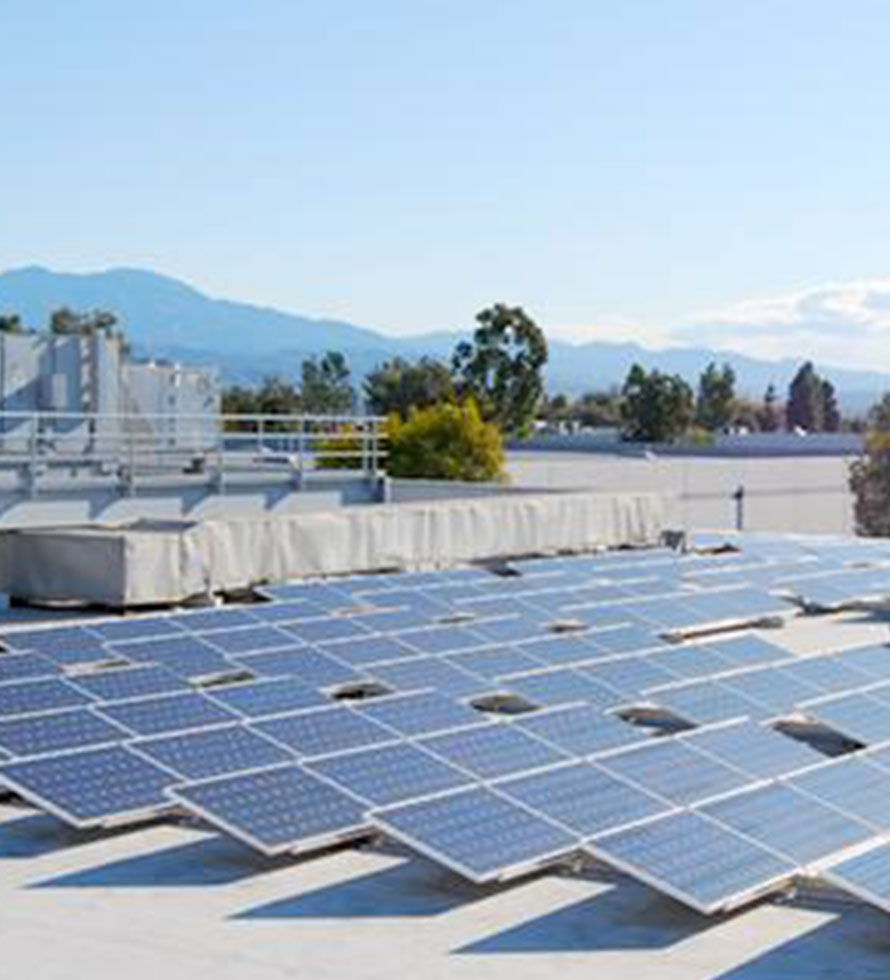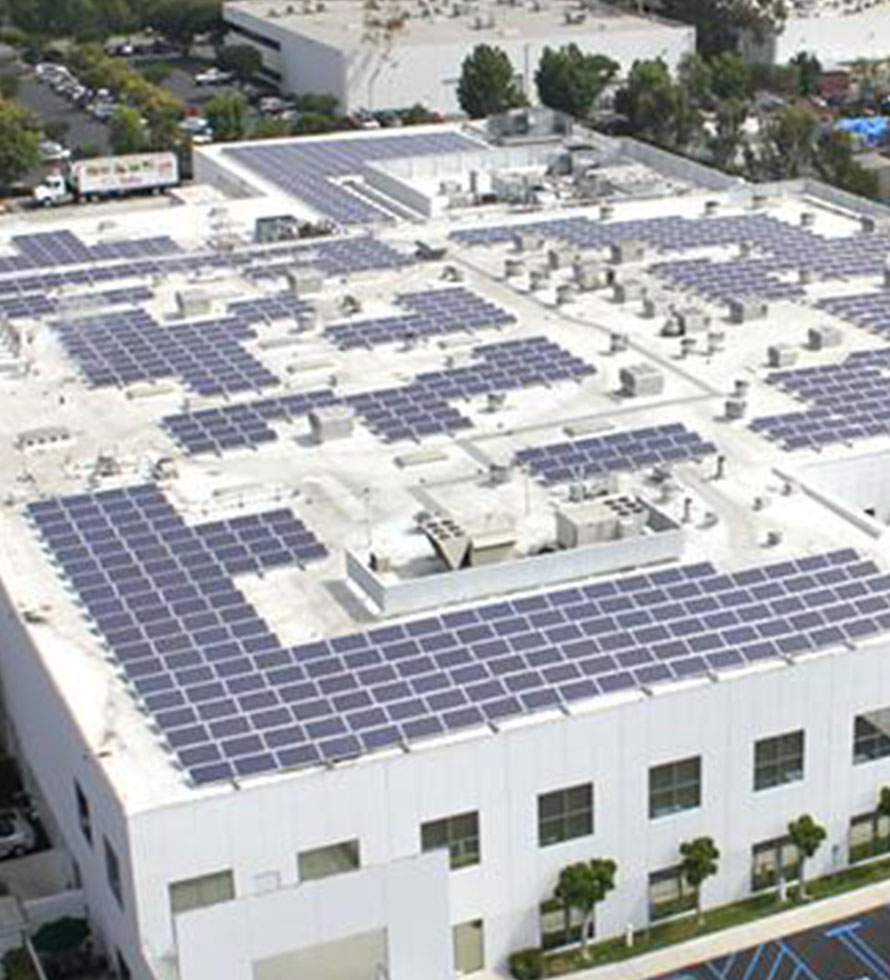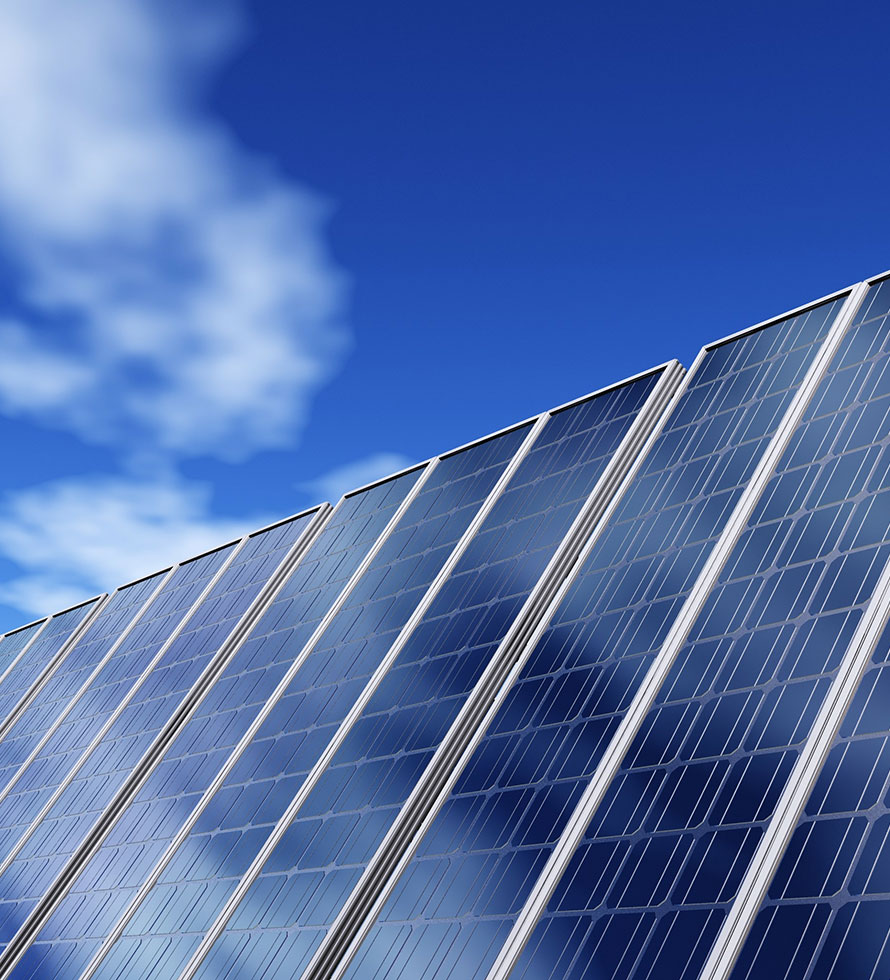What is Photovoltaic?





This process requires no fuels and is considered "free" electricity. Photovoltaic solar panels or commercial solar panels consist of groups of silicon wafer semiconductors connected together to generate enough electricity to meet the facility's needs. These panels are arranged in arrays so the wattage produced is used to run equipment and other devices.






With the right set-up, your business could be reaping rewards from photovoltaic systems in as little as one year. On average, investments typically yield returns within 4 to 6 years – a sound financial decision for any company looking to make waves in their industry! Our experienced professionals are here to help you determine if a photovoltaic system is a route to pursue. It's easy to find out; just contact us for a free Photovoltaic Feasibility Study.
When it comes to selecting a solar solution provider for your roofs, choosing us means partnering with a trusted and experienced team dedicated to delivering exceptional results. Complete the form below and let's explore your options!
Q: Does my roof need to be new?
A: Not necessarily, but your roof should be in good condition with plenty of service life remaining. If your roof is nearing the end of its useful life, it’s often best to reroof before installing solar panels so both systems align in longevity.
Q: Can it cause leaks?
A: When installed correctly by our qualified professionals, solar panels should not cause leaks. Proper flashing, sealing and coordination with solar provider are critical to ensure your roof remains watertight.
Q: What if there is a power outage?
A: Grid-tiered solar systems are designed to shut down automatically during power outages to protect utility crews. To keep critical operations running, many facilities pair their solar array with battery storage or a backup generator. This collaboration enables essential systems, such as emergency lighting, refrigeration or servers to remain powered until the grid is restored.
Q: Will it impact my roof’s current drainage system?
A: Solar panels are installed in a way that allows water to flow normally to drains, scuppers and gutters. A thorough site assessment ensures the roof’s drainage system remains efficient.
Q: How will rooftop solar affect my property value?
A: Rooftop solar can increase property value by lowering operating costs and improving sustainability credentials. Many buyers view solar as an attractive investment that reduces long-term energy expenses.